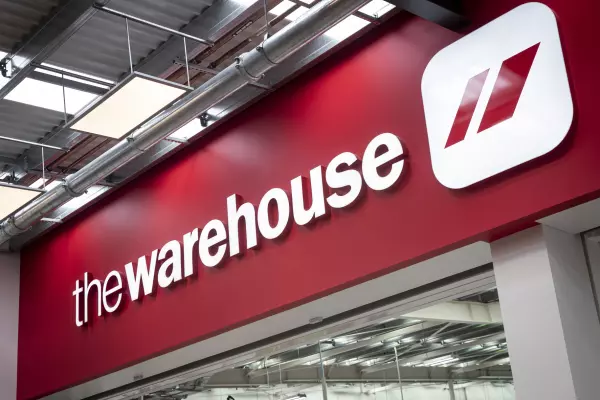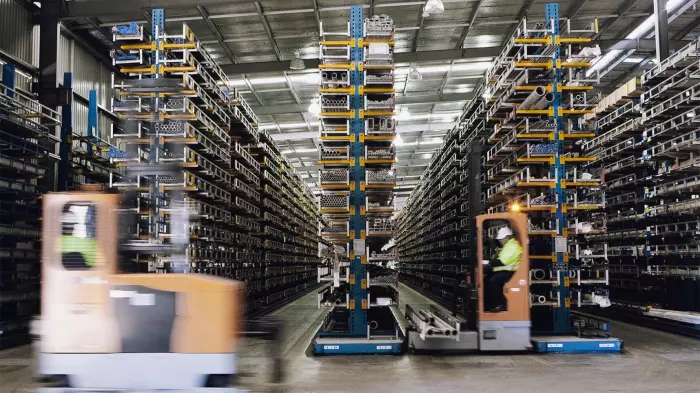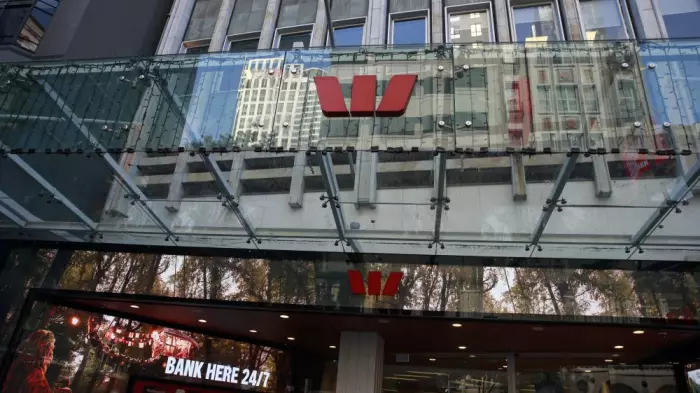BFG Preliminary announcement of full year results FY25
FLLYR
Fri, May 30 2025 12:32 pm
Burger Fuel Group Limited
Preliminary Full Year Results
For The Year Ended 31 March 2025
Chairman and Chief Executives’ Review
Overview – FY25
The Directors of Burger Fuel Group Limited (BFG) present the results for the 12 months to 31 March 2025.
(The audit of these results is in the process of being finalised).
Net Profit after tax for the period was $1,026,779 representing a 22.6% decrease on the previous year.
The FY25 profit result is down on the previous year due to a decline in sales, increased costs and a general downturn in the economy. Given the lower revenue in FY25 the Group posted a solid result. The FY25 Group results were reduced by legal costs of $221,687 incurred within the period to respond to the single shareholder opposition that was filed in relation to the proposed return of capital.
BFG (unaudited) Total System Sales (all three brands, all regions) decreased by 7.59% to $108.2M on the same period last year.
Regarding sales, it is worth noting that last financial year (FY24), we achieved our best sales year, with over $100M in sales for the New Zealand BurgerFuel system alone. This was partly due to the introduction of delivery services in New Zealand. We are now benchmarking against those higher introductory delivery sales for the same period last year. As we predicted, delivery sales spiked in the early months of introduction but ultimately resulted in many existing customers simply transferring from collecting orders themselves to using a delivery service.
Total income for the Group was down 8.45% to $24.97M.
As of 31 March 2025, 61 BurgerFuel restaurants were operating in New Zealand and 3 were operating in the Middle East (one fewer than last year), excluding some third-party “dark” kitchens operating in the UAE.
As of 31 March 2025, there were 4 Shake Out and 2 Winner Winner restaurants operating in NZ. The Shake Out Hamilton East store, however, closed on 31 March 2025, bringing the number of physical Shake Out locations to three.
Return of Capital occurring in June 2024 – more costs incurred to respond
FY25 Group results would have been further improved to circa $1.25M (Net profit after tax) if BFG had not been required to incur ongoing costs to respond to the single shareholder’s opposition that was filed against the proposed return of capital to all shareholders. The Company incurred legal fees of approximately $205,500 in FY24 and an additional $221,687 in FY25, (Total impact $427,187 or 18.15% of profit for the two years) specifically to address and respond to the opposition. This amount excludes the many months of management time that were also incurred throughout the opposition process. The net result of the defence ultimately cost shareholders two years of reduced profits and likely had an adverse effect on the BFG share price.
The return of capital by way of a scheme of arrangement was approved by 92% of the votes of shareholders cast at a special shareholders’ meeting held on 14 December 2023. Following opposition by one shareholder, a full-day hearing in the High Court of Auckland was held, and on 8 May 2024, the scheme was approved. The capital distribution to shareholders was made on 12 June 2024. Information on the scheme of arrangement, shareholder vote, notice of opposition and approval of the scheme by the High Court may be found on the NZX or at https://www.burgerfuel.com/nz/investor-relations#shareholder-information.
The Year’s Results and Group Outlook
New Zealand
Total systemwide sales across New Zealand (67 restaurants, all three brands) decreased by 6.6% on the previous year to $104M. We opened BurgerFuel Whanganui in July 2024, and this franchised store has been well received. We are also scheduled to open the franchised BurgerFuel Royal Oak store, in Auckland, in June 2025. The franchised BurgerFuel Hereford Street store in Christchurch closed in April 2024. This site never recovered from ongoing roadworks, and a new food precinct nearby didn’t help. The franchised BurgerFuel store at The Base shopping centre in Hamilton has closed, however a replacement store 100 metres down the road on Te Rapa Straight is scheduled to open in late 2025.
Shake Out’s total sales decreased by 10.5% in FY25. Our company-owned Smales Farm and Commercial Bay stores have been impacted by a decline in foot traffic, particularly Commercial Bay in the CBD and the franchised Hamilton East store, due to increased competition and a shift in customer traffic to a new food precinct nearby. The franchisee for the Shake Out Hamilton East store decided to close the location. The franchisee has instead set up a Shake Out virtual delivery-only kitchen within his BurgerFuel store, located nearby.
The Group now has 14 virtual (delivery-only) Shake Out kitchens operating out of existing BurgerFuel sites, which cover most of Auckland and Hamilton. Further virtual stores will be rolled out in the Bay of Plenty and Christchurch in the next few months. By the end of the financial year, we are scheduled to have over 32 Shake Out virtual (delivery-only) stores operating throughout New Zealand.
These new virtual stores increase system sales, provide franchisees with additional profit for little to no additional labour costs and increase brand awareness. Once we have New Zealand covered, the sales data collected will give some insights into the possibility of opening Shake Out physical locations in New Zealand.
Shake Out investment has been reduced for FY26, and the focus for this brand will remain on operating the three current stores (two of which are company-owned) as well as the ongoing development of the remaining virtual kitchen roll-out via select BurgerFuel outlets. Shake Out provides us with a tool to help combat lower-priced competition that erodes BurgerFuel sales. It also provides a valuable testing environment for experimenting with both food and technology, for example, our IT development at BurgerFuel stems from the cashless Shake Out point-of-sale system developed by BFG.
Winner Winner total sales decreased by 41% mainly due to the closure of the Pukekohe store and our Takapuna company-owned store in FY24. In FY25, the Winner Winner and Shake Out brands represented 5.6% of the Group's total sales (5.8% of total New Zealand sales). As previously advised, we have parked any further development of Winner Winner.
The Middle East
Operation of BurgerFuel in the UAE remains under the DA (Development Agent) agreement. BFG generated modest royalties from the region. Costs are now negligible, and a small profit is anticipated in FY26. Dubai remains an expensive location for store development, and rents are very high, making expansion unattractive at this point. We do not anticipate any further growth in Dubai for FY26. However, we will continue to maintain a presence in the region, as it is not costing us, and a small profit is being generated. Most importantly, it is an opportunity to keep the BurgerFuel brand alive for both exposure and potential future development, if at any stage that looks feasible for the DA.
The Saudi region closed their Nakhla store in Riyadh in September 2024, leaving two stores remaining. Dubai still has one store in the World Trade Centre, three “Dark” delivery kitchens and a food truck for events and promotional purposes.
The Middle East system sales were down 26% in FY25. This is due to Saudi Arabia closing the two underperforming stores in the last 15 months. Saudi Arabia is facing similar high costs of development and rents, and it remains to be seen if any new stores will open; however, we are not counting on any in FY26.
Sales from this region represent 4.12% of total BurgerFuel sales.
Continued Investment in Information Technology (IT) Development
In FY24, the Group launched its online ordering platform, which features an integrated loyalty app. This online ordering platform generated $497K of revenue in FY25. We have also experienced a significant customer uptake of the loyalty app, allowing us to engage directly with our customers and update them on new specials, promotions, and targeted loyalty perks.
We view investment in technology as an ongoing necessity for the business, as well as a potential area for generating additional revenue. In FY25, we invested further in the online ordering platform, creating Version 2. Building on the learnings from our current in-house online ordering platform, we have upgraded the functionality and architecture to enhance customer interaction.
In FY26, we intend to further develop the IT capability of Version 2 which is currently in the Beta testing stage. We expect to commence integration of Version 2 within the BurgerFuel system in the second half of FY26.
Our goal is to generate additional income from this platform, both within and eventually outside the BurgerFuel system. The new platform will have the capability to be scaled across external third-party brands, offering the ability to create a generic “white label” online ordering platform. Our ongoing and considerable investment in IT is of a capital nature; thus, it hasn’t impacted our Group Income Statement results in FY25.
Summary and Outlook
The summary and outlook stated in FY24 has largely occurred. Trading in FY25 has been one of the toughest on record for the hospitality industry. Although there is talk of economic improvement, we have not seen this translate to sales; the economy remains in recession. The slow reduction of interest rates and general economic uncertainty has led to consumers keeping their wallets in their pockets. People are spending less and most certainly eating out less. We do not anticipate significant positive changes in the economic environment over the next 12 months. It is not possible to accurately predict the year ahead, but at this stage, we anticipate sales will be relatively flat, depending on both local economic conditions and the global implications of ongoing wars, tariffs and high overseas demand for NZ produce, particularly beef. These factors directly affect our costs as well as consumer confidence and spending, resulting in reduced sales and ultimately reduced revenue. It remains to be seen how the economic recovery will play out this year.
Costs continue to rise, including both ingredients and labour. Main ingredient staples, such as beef, are increasing in cost due to overseas demand, and this trend is likely to continue in FY26. Other ingredients are also affected by the war in Ukraine. Throughout FY25, we have experienced constant cost pressures, and although we have been able to absorb some of these, the reality is that consumers are now paying more for take-out and restaurant food. We anticipate that costs will continue to rise in FY26. All of this leads to ongoing margin pressure for franchisees and for the Group, as well as higher prices for consumers who are well aware of this growing industry trend.
Other factors that we think have and will continue to affect sales and that we would like to draw shareholders’ attention to include;
Wider Food Competition: Proliferation of supermarket ready to eat meals and online food delivery options either prepared at home or purchased hot and ready to eat on the growing number of delivery provider apps such as Uber Eats and Delivereasy. Consumers now have a lot of choice, so competition for “share of stomach” continues to grow.
Bigger Discounts in QSR and Online: There is considerable discounting occurring every day in both the major chains and smaller operators as well as in online service apps such as Uber Eats, where food is regularly sold by a range of vendors at well below cost. We do not intend to compete at such high discounting levels to gain business, as we view this trend as merely the beginning of a steep and slippery slope of discounting, which is almost impossible to recover from. Instead BurgerFuel continues to focus on high-quality product and providing value for money at a more premium level.
Target market decline: As we expressed in earlier commentary, there has been a significant exodus of home-grown, hardcore BurgerFuel customers to Australia and other overseas destinations. These younger BurgerFuel customers are not being replaced by incoming migrants, who are unlikely to purchase from BurgerFuel for some years.
Countering the Headwinds
Overall, our strength is our brand. BurgerFuel continues to innovate and find ways to bring customers back to our brand and product, based on our renowned in-store experience, innovative marketing, high-quality ingredients, strict standards, and the environmental and other pillars on which we stand, rather than offering cheap processed food at discounted prices.
An excellent example of an initiative designed to address growing market discounting has been the launch of our lightweight burgers. This range maintains our high standards for taste and ingredients while reintroducing more affordable burgers known as our “Lightweight” range, which is now available in-store. The Lightweight range is all about offering consumers a product that is “kind to your belly and even kinder to your wallet.”
Other initiatives include trialling extended trading hours designed to capture both later night walk-in customers as well as the delivery market in those areas where we think a market may exist after 10.00PM. We have also introduced new store designs which will gradually roll-out throughout the system over the next few years as economic circumstances allow. In FY25 we undertook a significant franchisee refresh programme with a number of stores changing hands to bring in fresh operators, this programme continues as required into FY26.
The further development of our loyalty programme (VIB Club) designed to incentivise customers to increase purchase frequency through the accumulation of loyalty points, also remains a key focus. Menu innovation has always been a strength of BurgerFuel, and this is something which we continue to invest in. This includes keeping the menu fresh with the development of interesting gourmet flavours and combinations, which are a big part of bringing customers back to stores.
Despite the challenges posed throughout FY25, the Group achieved a strong result. The economy remains tough, and hospitality in general remains challenging. However, we expect to remain in profit in FY26 and continue investing in areas of the business that are generating reasonable returns, aiming to achieve some growth. This includes our commitment to opening new outlets where possible, reviewing new opportunities and income streams, currently through ongoing investment in IT and managing our supply chain costs as efficiently as possible, given the current environment.
We remain aware of potential opportunities in the food sector and continue to review them; however, at this stage, the Board would not be comfortable with further investment in food, unless a unique and manageable opportunity presents itself, at least until we can see an end to rising costs and economic uncertainty.
The Group intends to continue strategic investment in IT and other areas, and to maintain its “no material debt” policy, ensuring that we retain ample cash reserves available at any time if required for system investment or new opportunities. Having just undertaken a significant return of capital to shareholders, BFG does not intend to offer dividends in the next 24 months, at which time the dividend policy will be reviewed.
We would like to thank all our shareholders, staff, franchisees, suppliers, and, of course, our valued customers for their continued support.
Best regards,
Alan Gourdie
Chairman
Josef Roberts
Group CEO
Contact:
Mark Piet
CFO/Company Secretary
Burger Fuel Group Limited
Mob 021 453 333
Email: [email protected]




